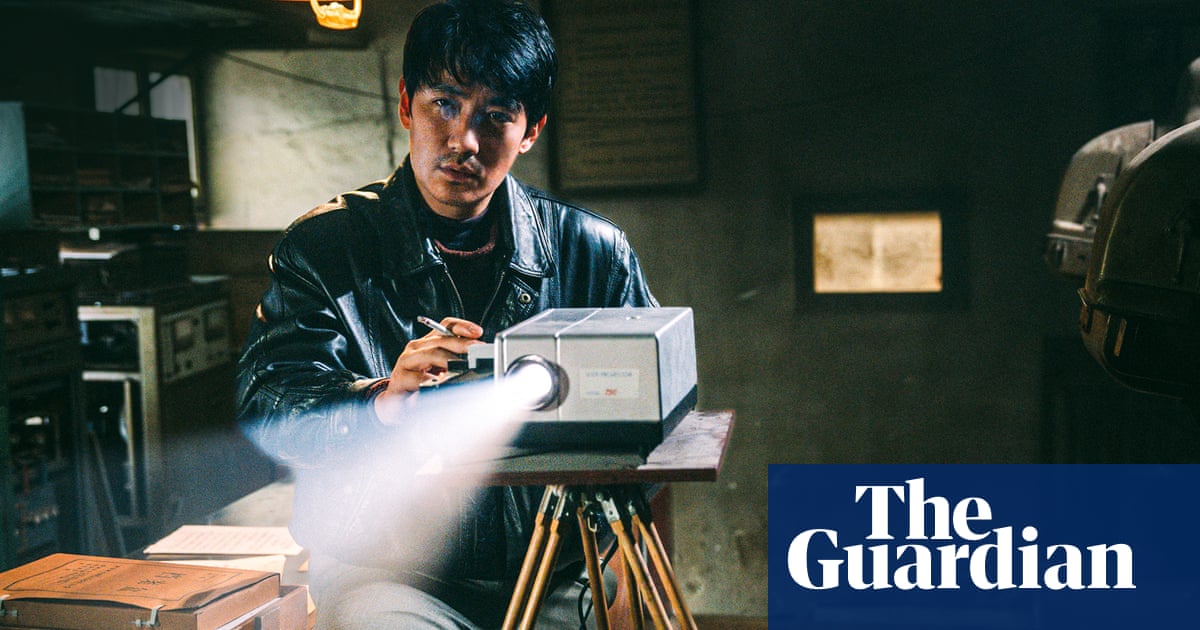A village, a murder and a chain-smoking detective. The building blocks of the gritty new procedural, Only the River Flows, are familiar. But as the mysteries and secrets pile up, this spellbinding Chinese noir transports the viewer into a world of uncertainty that has made it a surprise hit in China. Its precociously young director hopes western viewers will be similarly enthralled.
Speaking via video from Los Angeles, Wei Shujun, a Beijing native, is confident about his work. “There’s no movie where the story isn’t intentional,” the 33-year-old says. But when it comes to the fate of a Chinese film in western cinemas, he is less certain. Attracting international attention to Chinese films is hard, he says: “In mainstream western culture, when you introduce Chinese culture, you have to eliminate a stereotype. Not all western audiences know what’s new in China, or their understanding of China is limited, so their impression of China is a kung-fu film. Some people think Chinese people still have that long braid.” He is referring to the hairstyle, featuring a shaved forehead and a long plait, that was mandatory for men during the Qing dynasty. “There is still a lot we need to do to spread Chinese cinema to western audiences.”
Wei has done better than most to break through internationally. Born in Beijing in 1991, he started his career as an actor at the age of 14. He went on to study at the Communication University of China, a place known for producing on-screen talent, but decided to move behind the camera. As a teenager, he was “very interested in the atmosphere of the crew. I thought they were a utopian group. People from different places get together quickly, then get excited together, get tired together. They separate at the end, leaving behind a DVD. Hopefully, the people who see the contents of that DVD will one day be able to empathise with the creators.”
But as a university student, he realised that he wanted to make his own stories, not act in somebody else’s. He directed his first feature, Duck Neck, in 2016, and followed it with a short film, On the Border, in 2018, about a Chinese man of Korean descent who aspires to join South Korea, and it won the special jury award at the Cannes film festival. Since then, Wei has become the only Chinese director of his generation to be selected for Cannes three times, with his latest film shortlisted for the Un Certain Regard section.
Only the River Flows is an adaptation of a novel by celebrated avant-garde writer Yu Hua. Set in the rural town of Banpo in the 1990s, it tells the story of Ma Zhe, a police detective played by Zhu Yilong. Zhu is a part of the “little fresh meat” tribe, an internet term that refers to exceedingly pretty, delicate-looking male celebrities but for Only the River Flows has been given an impressively rugged transformation to play an idealistic but weary detective investigating the murder of a woman whose body is found by the river. With his boss eager to wrap up the case, and a pregnant wife neglected at home, Ma Zhe is under pressure to keep things simple and blame the local madman who at one point is stopped covered in blood. But Ma Zhe won’t go along with it, sending him on a journey into the inner lives of his small community.
“His duty is to find out what’s going on in the case and who’s the murderer, and there’s no problem with that. But in the process, we discover more and more people’s secrets, and then these secrets gradually develop,” Wei says.
Wei is no stranger to resisting pressure to keep things simple. He shot on 16mm film, which he was advised would be difficult and expensive, not least because of the absence of laboratories in China that can process that type of film. But he insisted, and the result is a retro, grainy finish that adds to the film’s noir-style texture. Wei’s efforts paid off in China, where the film was a surprise hit in a box office normally dominated by nationalist blockbusters. The film netted 309m yuan (£34.1m) at the Chinese box office after it was released in October last year.
One of the most beguiling aspects of the film is the way in which it suggests that Ma Zhe himself is losing his grip on reality. In a fit of anger, he sabotages his wife’s jigsaw puzzle by throwing away some of the pieces, only to find later that it’s been completed. A police-school certificate that he insists he has seems to not exist. Ma Zhe’s police office is set up in an abandoned cinema, raising the question of whether the whole investigation is an artifice. “A detective novel is supposed to be based on rationality and logic,” We says. But in Yu Hua’s “anti-genre narrative”, there is a “different understanding of rationality … we’re thinking about the limits of rationality. I found that very appealing.”
Additional research by Chi Hui Lin
